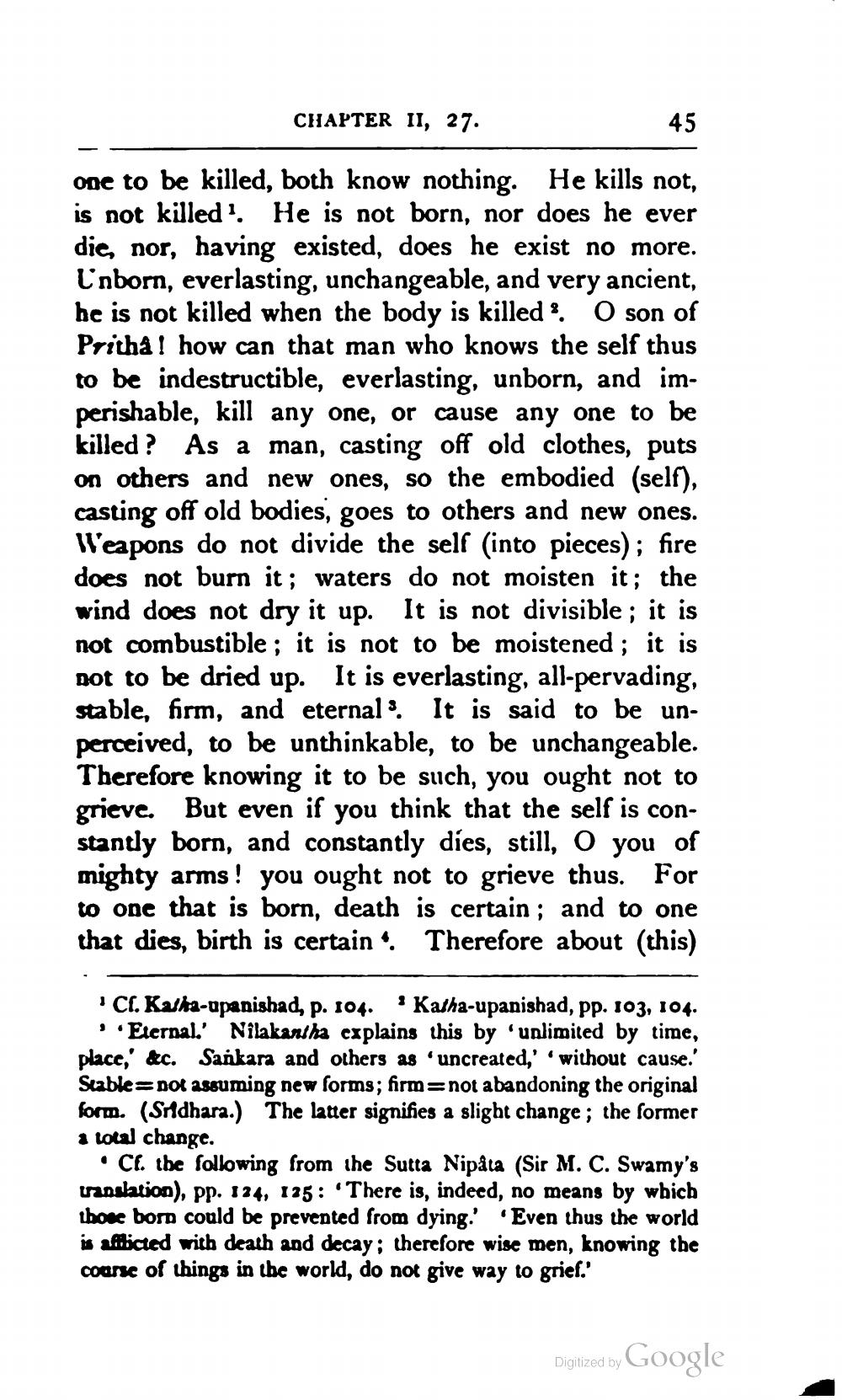________________
CHAPTER II, 27.
45
ope to be killed, both know nothing. He kills not, is not killed. He is not born, nor does he ever die, nor, having existed, does he exist no more. Lnborn, everlasting, unchangeable, and very ancient, he is not killed when the body is killed. O son of Prithål how can that man who knows the self thus to be indestructible, everlasting, unborn, and imperishable, kill any one, or cause any one to be killed ? As a man, casting off old clothes, puts on others and new ones, so the embodied (self), casting off old bodies, goes to others and new ones. Weapons do not divide the self (into pieces); fire does not burn it; waters do not moisten it; the wind does not dry it up. It is not divisible; it is not combustible; it is not to be moistened ; it is not to be dried up. It is everlasting, all-pervading, stable, firm, and eternal. It is said to be unperceived, to be unthinkable, to be unchangeable. Therefore knowing it to be such, you ought not to grieve. But even if you think that the self is constantly born, and constantly dies, still, O you of mighty arms! you ought not to grieve thus. For to one that is born, death is certain ; and to one that dies, birth is certain. Therefore about this)
Cl. Kasha-apanishad, p. 104. 'Katha-upanishad, pp. 103, 104. • Eternal.' Nilakansha cxplains this by "unlimited by time, place,' &c. Sankara and others as 'uncreated,' without cause.' Stable=not assuming new forms; firm=not abandoning the original form. (Sidhara.) The lader signifies a slight change; the former a local change.
• Cf. the following from the Sutta Nipära (Sir M. C. Swamy's ranslation), pp. 124, 125: 'There is, indeed, no means by which ihove boro could be prevented from dying.' 'Even thus the world is afflicted with death and decay; therefore wise men, knowing the coarse of things in the world, do not give way to grief.'
Digitized by Google




